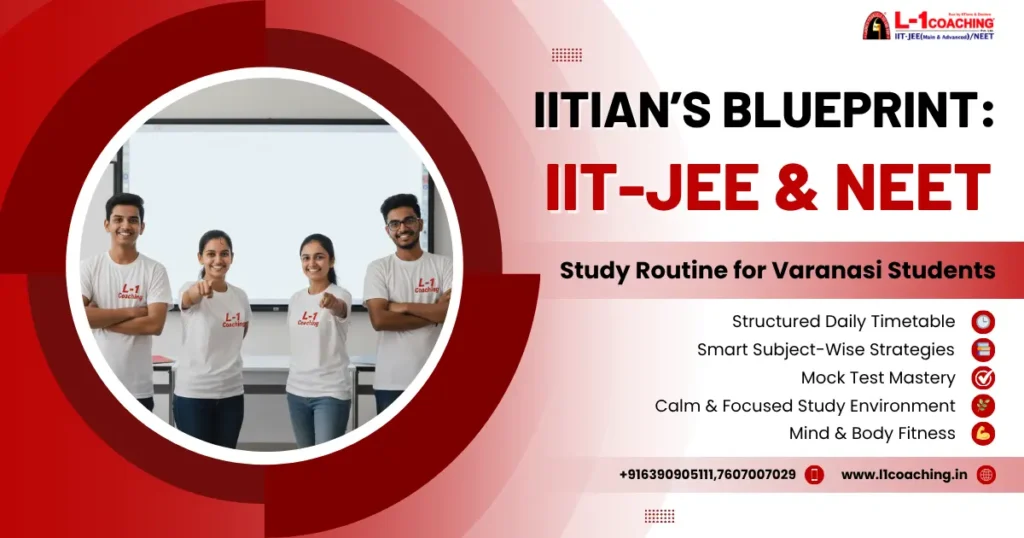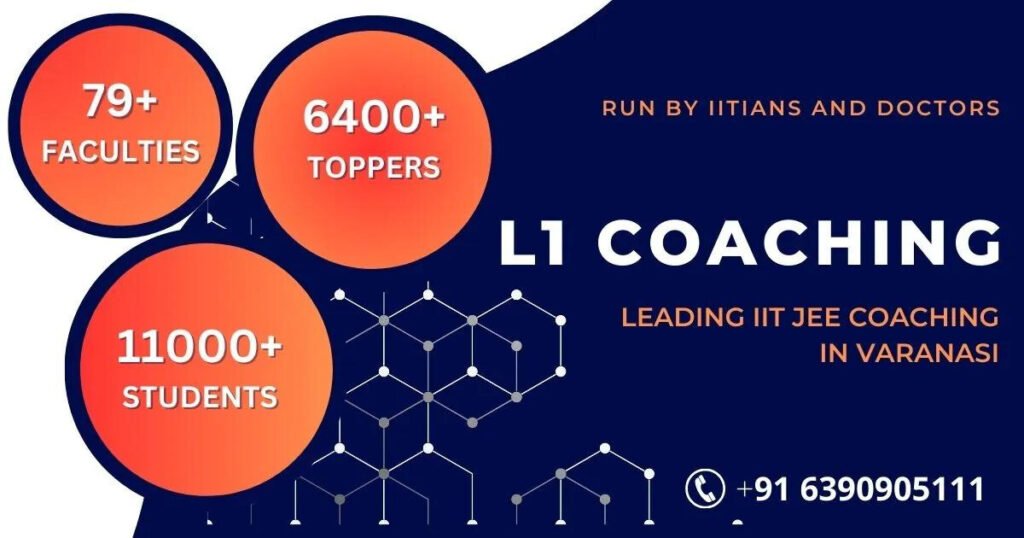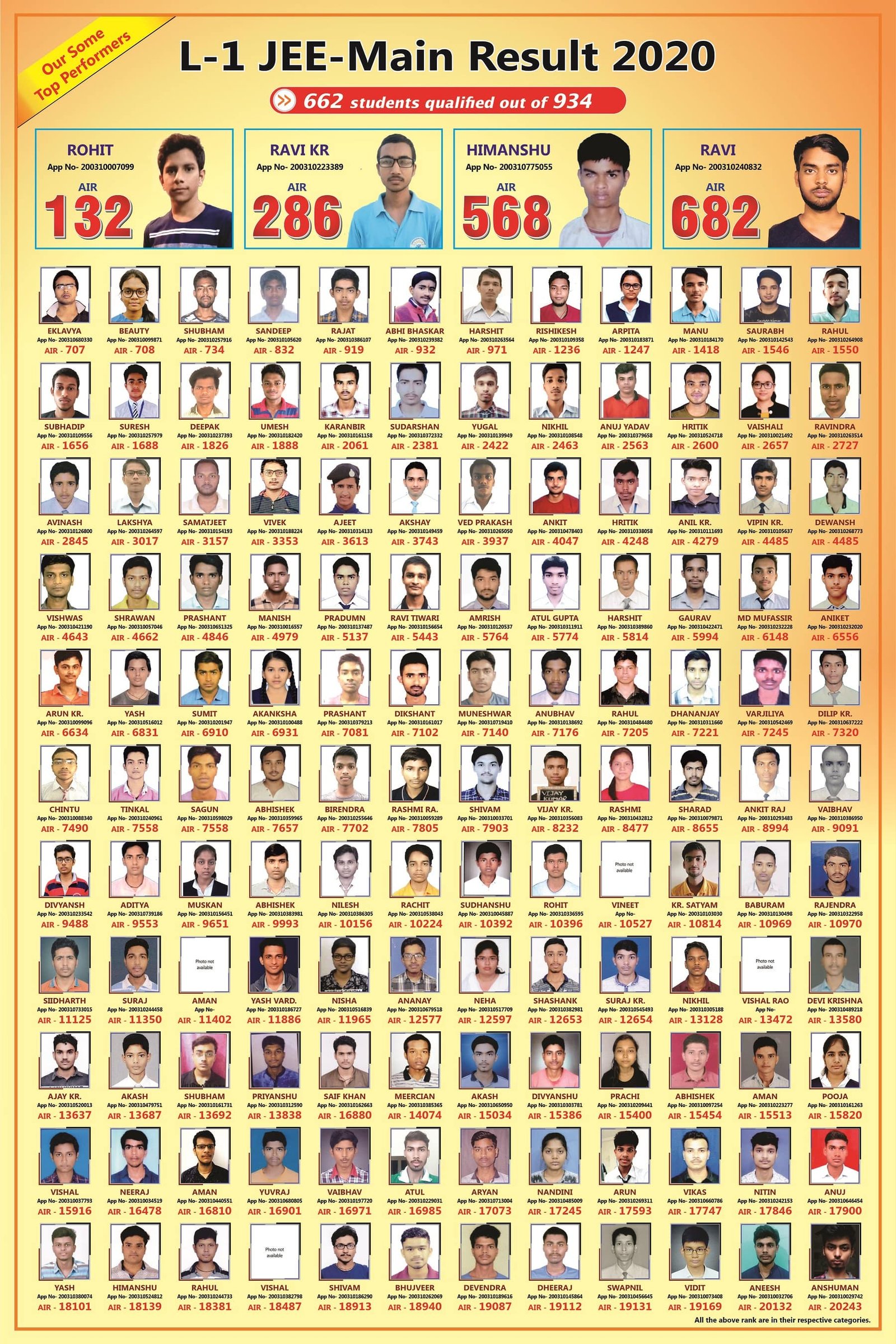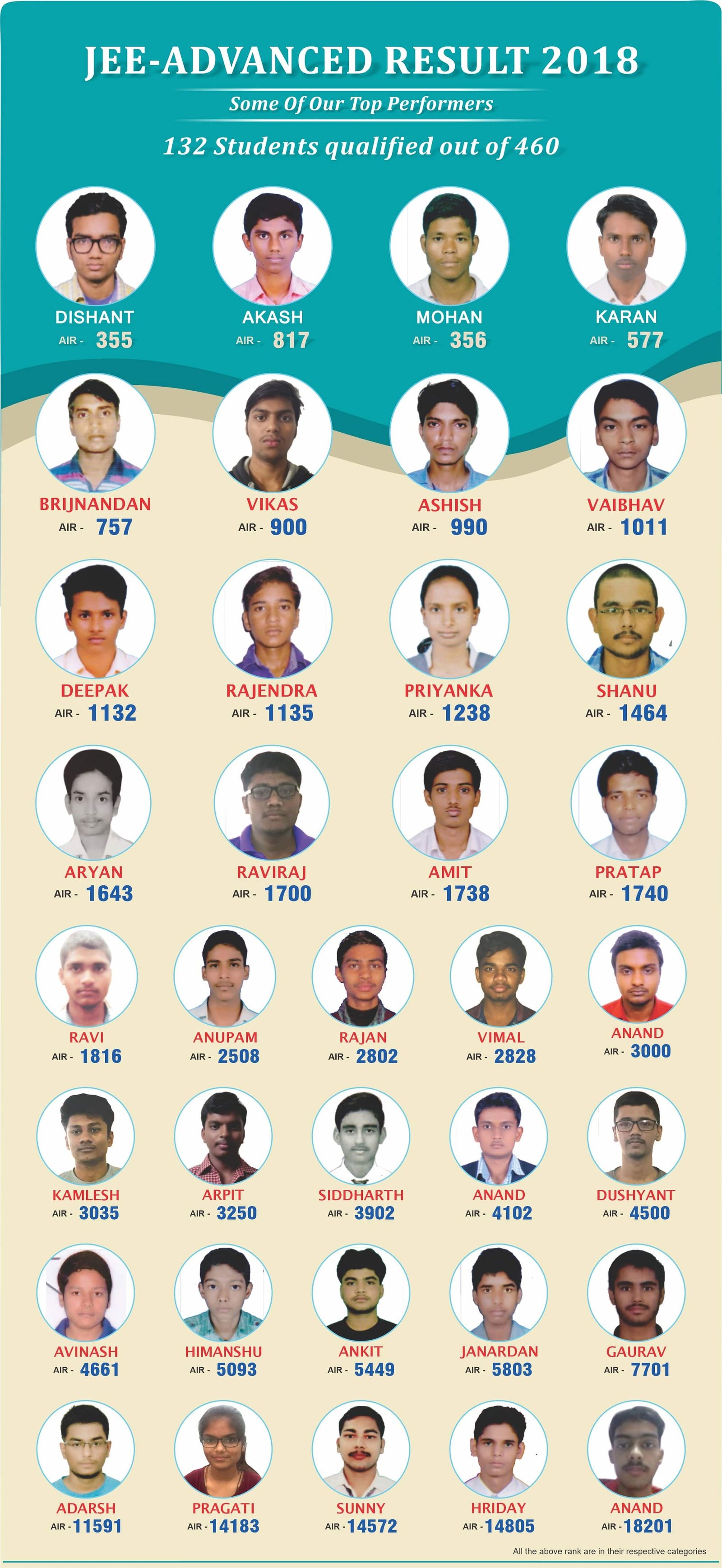The Dawn of Discipline: Crafting the Ideal Study Timetable for IIT-JEE & NEET
The journey to cracking the IIT Exam or securing an MBBS seat through IIT-JEE & NEET Preparation is less a sprint and more a marathon— a two-year pilgrimage built on unwavering consistency and discipline. For aspirants in Varanasi, known for its deep-rooted culture and academic focus, adopting a structured timetable is the definitive first step toward success. This section outlines the ‘IITian’s Blueprint’ for scheduling, transforming vague study goals into measurable daily achievements.
A truly effective study routine must be personalized, yet it must adhere to a few universal principles proven by top rankers. First, recognize your peak hours. Are you an early bird, a night owl, or do you thrive in the late afternoon? Your timetable should be built around these optimal cognitive periods. However, a common structure for a serious IIT-JEE or NEET aspirant involves a minimum of 10-12 hours of dedicated work per day, balancing new learning, revision, and rigorous practice.
The Golden Ratio of Study:
The most successful aspirants follow a ratio that allocates time across three main areas:
1. New Concept Learning (35%): Dedicate a significant chunk of time, ideally in your peak hours, to attending classes—whether offline at your coaching center (like the specialized programs at L1 Coaching) or engaging with online lectures. Crucially, this time also includes 1-2 hours of self-study immediately after the class to solidify the concepts while they are fresh. This immediate review prevents the “forgetting curve.”
2. Problem Solving & Application (50%): This is the engine of your preparation. For JEE-Main and Advanced, problem-solving is paramount. For NEET, extensive practice with MCQs is key. This time should be split equally between the three subjects (Physics, Chemistry, and Math/Biology). Aim to solve a minimum number of problems daily—say, 50-70 quality questions—focusing on depth over sheer volume. The difficulty should be scaled, moving from foundation questions to those matching the IIT-JEE Mains and NEET pattern.
3. Revision & Test Analysis (15%): Under-utilizing this time is the most common mistake. Revision should be a daily ritual, not just a weekend activity. Use the last hour of your day to quickly review the key formulas, concepts, and most importantly, the mistakes you made during the day’s problem-solving session. A 7-day, 30-day, and 90-day revision cycle ensures long-term memory retention, which is critical for the vast syllabus of the IIT Exam and NEET.
The Peak Performance Study Blueprint:
| Phase | Time Block | Activity Focus | Goal & Mindset |
| The Foundation Phase (7 Hours) | 6:00 AM – 7:00 AM | Wake Up & Warm-up | Light Exercise & Quick Review (Activate the brain) |
| 7:00 AM – 9:30 AM | Subject 1: Physics/Biology | Heavy Lifting. Attack the most complex, new material while the mind is fresh. | |
| 9:30 AM – 10:00 AM | Recharge | Break & Breakfast. Essential fuel for the next session. | |
| 10:00 AM – 1:00 PM | Structured Learning | Coaching Class Lecture (Absorb new information). | |
| The Practice & Revision Phase (5 Hours) | 1:00 PM – 2:00 PM | Reset | Lunch and Power Nap. Convert short-term memories to long-term. |
| 2:00 PM – 4:00 PM | Subject 2: Chemistry | Immediate Self-Study. Practice problems and solidify the morning’s lecture material. | |
| 4:00 PM – 5:00 PM | Mental Break | Light Snack & Mental Reset (Clear the head before the evening sprint). | |
| The Practice & Revision Phase (5 Hours) | 5:00 PM – 7:30 PM | Subject 3: Math/Biology | Focused Practice. Dedicated problem-solving and MCQ testing. |
| 7:30 PM – 8:30 PM | Relax & Connect | Dinner and Family Time (Necessary mental break and social time). | |
| 8:30 PM – 10:00 PM | End-of-Day Review | Revision of Previous Topics, Error Analysis, and planning for tomorrow. | |
This blueprint emphasizes structured learning at the IIT Coaching Near me (L1 Coaching) and consistent, high-quality self-study. It acknowledges that a rigid schedule is only as good as its flexibility; if a topic takes longer, adjust, but never skip the daily practice or revision slots. Discipline is about showing up and executing the plan, regardless of minor setbacks.
Mastering the Core: Subject-Wise Study Hacks for JEE-Main & NEET Preparation
Success in the IIT-JEE and NEET exams is not just about hard work; it’s about smart, targeted work guided by effective subject-specific strategies. Both exams demand a deep understanding of Physics, Chemistry, and either Mathematics (for engineering) or Biology (for medicine). An IITian’s approach involves viewing each subject as a distinct challenge requiring a unique set of ‘hacks.’
Physics: The Art of Conceptual Clarity and Problem Solving (Crucial for JEE-Main and NEET)
Physics is the ultimate bridge between theory and application. Simply memorizing formulas is a recipe for disaster on the JEE Exam and NEET. The hack here is conceptual visualization.
1. The “Why” Before the “How” : Before attempting problems, spend time understanding the physical principle behind the formula. Why is angular momentum conserved? What is the meaning of a capacitor’s capacitance? This foundation, built diligently in your IIT Coaching Near me classes, is non-negotiable.
2. Layered Problem Solving : Start with basic, single-concept questions. Move to multi-concept problems, which are typical in IIT-JEE Mains and Advanced. Finally, tackle the previous year’s questions (PYQs). The core of JEE-Main is speed and accuracy, which only comes from practicing a large variety of problems across different difficulty levels.
3. The Error Log : Maintain a dedicated notebook for Physics mistakes. Write the concept, the flawed approach, and the correct solution. Reviewing this log weekly is more effective than solving a hundred new problems, as it targets your specific weaknesses.
Chemistry: Balancing Theory, Application, and Memory (High Yield for JEE-Main & NEET Preparation)
Chemistry is unique because it blends highly conceptual topics (Physical) with fact-heavy ones (Inorganic and Organic). Your NEET Preparation or IIT-Jee strategy must reflect this diversity.
1. Physical Chemistry: The Math Side: Treat this like Physics. Focus on solving numerical problems extensively. Understand the derivation and limitations of formulas like the Nernst Equation or Rate Laws. Consistency is key to converting conceptual understanding into accurate solutions.
2. Inorganic Chemistry: The Memory Side: This is largely a memory game. L1 Coaching recommends making flashcards or mnemonic devices for the Periodic Table, Chemical Bonding exceptions, and qualitative analysis reactions. Daily, short revision bursts are more effective than one long, exhaustive session.
3. Organic Chemistry: The Reaction Mechanism Side: This is the most conceptual part. Focus on reaction mechanisms (why and how a reaction happens), not just the reagents and products. Create reaction flowcharts (A → B → C) for major named reactions (e.g., Aldol, Cannizzaro). This interconnected view is vital for the complex multi-step problems seen in the IIT Exam.
Mathematics/Biology: Precision and Volume (The Deciding Factor)
For IIT-JEE aspirants, Mathematics is often the rank-deciding subject. For NEET aspirants, Biology is the scoring powerhouse.
- Mathematics (IIT-Jee): The blueprint is Precision. Unlike Physics, where approximations are sometimes allowed, Math demands exact answers. Practice problems from the module provided by your IIT Coaching Near me (L1 Coaching) that focus on speed and avoiding calculation errors. Key topics like Calculus and Coordinate Geometry require deep, consistent practice. The goal is to solve problems correctly the first time.
- Biology (NEET): The blueprint is NCERT Mastery. The NEET Preparation success mantra is built on the NCERT textbook. Every line, every diagram, and every table must be internalized. Use active recall techniques: read a paragraph, close the book, and try to explain the concept aloud. Supplements like L1 Coaching’s specialized material help clarify tricky concepts, but the primary text remains the sacred scripture for the medical entrance exam.
By applying these targeted hacks, students move beyond mere studying to genuine subject Mastery, which is the hallmark of every successful IITian and top NEET scorer.
Read more about Best IIT Jee Neet Coaching in Varanasi
The Varanasi Advantage: Optimizing Your Study Environment & Choosing the Best IIT Coaching Near Me
Varanasi, the spiritual and intellectual heart of India, offers a unique environment for competitive exam preparation. Unlike the overwhelming distractions of mega-metros, Kashi provides a calm, focused, and academically charged atmosphere. Leveraging this “Varanasi Advantage” is key to optimizing your preparation for the IIT-Jee and NEET Preparation.
Capitalizing on the City’s Serenity:
The city’s ancient energy naturally fosters concentration. The quiet lanes, the meditative calm of the Ghats, and the traditional focus on Vidya (knowledge) offer a conducive backdrop for intense study. The blueprint suggests that students intentionally utilize this calm:
1.The Home/Hostel Environment: Ensure your study space mirrors the city’s serenity—a clean, well-lit, and dedicated zone free from digital and domestic distractions. A separate room or a corner designated only for study is non-negotiable. If you are staying in a hostel, choose one that promotes a disciplined routine, such as those associated with leading institutes like L1 Coaching, which offer a structured living-and-learning atmosphere.
2. Scheduled Breaks as Detox: Instead of passive breaks (like scrolling social media), use your downtime for a quick, mindful walk. A 15-minute break near a calm temple or a quiet park can clear your mind more effectively than an hour of television. This aligns with the ‘focused effort’ required to master the vast syllabus of the IIT Exam and JEE-Main.
Choosing the Right Academic Partner: IIT Coaching Near Me
While self-study is the backbone, the right coaching institute is the guide and the accelerator. When searching for the IIT Coaching Near me in Varanasi, aspirants must look beyond superficial marketing and focus on the ‘IITian’s Blueprint’ criteria:
1. Faculty Credibility and Pedagogy: Look for faculty who are themselves Ex-IITians, seasoned subject experts, or medical professionals. At institutions like L1 Coaching, a faculty team with proven experience in cracking the IIT-JEE Mains and NEET exams provides insights that textbook-only knowledge can never offer. The quality of teaching, doubt-clearing sessions, and personalized attention are more important than batch size.
2. Relevant and Updated Study Material: The course material must be meticulously aligned with the latest NTA/JEE Advanced and NEET patterns. Avoid institutes that use outdated materials. The resources provided by your IIT Coaching Near me should be comprehensive enough that they become your primary resource, preventing the common mistake of juggling multiple, often contradictory, external books.
3. Local Expertise and Proven Track Record: A top institute in Varanasi understands the specific academic culture, student mindset, and competition level of the region. They have a localized track record of success, demonstrating their ability to turn local talent into national rankers. The best results in the JEE Exam and NEET often come from institutes deeply integrated into the local academic ecosystem.
By choosing a facility like L1 Coaching, which integrates rigorous academic planning with the focused, disciplined environment of Varanasi, students can significantly reduce friction in their preparation, allowing them to concentrate solely on the intellectual challenge of the IIT-JEE. The right environment is the silent partner in your success.
Mock Test Mastery: The Essential Role of AITS in Cracking the IIT Exam & NEET
In the “IITian’s Blueprint,” the mock test is not merely a practice session; it is the most critical learning tool—a trial by fire that reveals the true state of your preparation. For an aspirant aiming to crack the IIT Exam or achieve a top rank in NEET, adopting a rigorous All India Test Series (AITS) strategy is non-negotiable. This process separates those who merely study from those who master the art of competitive examination.
The Philosophy of Full-Scale Simulation:
Successful aspirants treat every mock test as the actual JEE-Main or NEET examination. This means adhering strictly to the official time slots, wearing the clothes you might wear on exam day, and practicing with the same stationary. This psychological preparation helps acclimatize the mind and body to the high-pressure environment of the IIT-JEE Mains or NEET. At L1 Coaching, test series are designed to mirror the exact pattern and difficulty distribution of the actual exam, providing a realistic assessment.
The Mock Test Cycle: A Three-Phase Approach:
Phase 1: The Execution (The Test Itself):
- Time Management: This is the primary skill tested. An IITian’s strategy involves the ‘Three Pass’ method:
- Pass 1: Quickly solve all the easy, high-confidence questions.
- Pass 2: Tackle moderate-difficulty questions requiring calculation or slightly more thought.
- Pass 3: Attempt the tough, time-consuming questions.
- Attempting Strategy (NEET): Focus on Biology (high scoring, less time) first, followed by Chemistry, and then Physics. This secures maximum marks early.
- Attempting Strategy (JEE): Start with your strongest subject to build momentum, but maintain strict time limits per subject (e.g., 1 hour per subject). This meticulous execution is what helps students from the IIT Coaching Near me stand out in the national competition.
Phase 2: The Analysis (The Crucial Step):
Immediately after the test, resist the urge to relax. The real learning begins now. Analysis should take at least twice the time of the test itself.
- Categorize Mistakes: Go through every question you got wrong or skipped. Classify the mistake into three categories:
- Conceptual Error (CE): You didn’t know the concept. Action: Go back to the textbook/notes and re-learn the topic.
- Silly/Calculation Error (SE): You knew the concept but made a mistake in calculation or sign. Action: Focus on slow, deliberate practice to eliminate carelessness.
- Time Management Error (TE): You knew the concept but ran out of time. Action: Practice speed drills on similar questions.
- Identify Weak Areas: Use the data from the AITS to pinpoint entire chapters where you consistently falter. This information is invaluable for refocusing your daily NEET Preparation or IIT-Jee self-study time.
Phase 3: The Correction (The Improvement):
- The final stage is the action plan. Based on your analysis, dedicate the next week to strengthening the weakest 2-3 topics. Re-solve all the questions you got wrong on the test. For a rigorous JEE Exam or NEET preparation, this correction is the catalyst for exponential score improvement.
By adopting this Mock Test Mastery routine—a key component of the L1 Coaching methodology—aspirants ensure they are not just passively consuming the syllabus but actively developing the temperament, time management, and strategic thinking required for Cracking the IIT Exam and NEET.
Mind and Body: Maintaining Mental & Physical Fitness for the Long Haul of IIT-JEE Mains
The IIT-JEE and NEET preparation is not just an academic challenge; it is a test of endurance, demanding peak mental and physical resilience over a two-year period. The “IITian’s Blueprint” acknowledges that a brilliant mind is ineffective without a healthy body to support it. Neglecting well-being is a fast track to burnout, which can derail months of dedicated work for the IIT-JEE Mains or NEET Preparation.
The Mental Fitness Protocol:
1. Scheduled Relaxation and Hobbies (The De-stressors): Dedicate a fixed amount of time daily (30-60 minutes) to a non-academic hobby—be it music, light reading, or simple conversation with family/friends. This mental break allows the brain to process and consolidate the information learned, ironically making your study time more efficient. Trying to study non-stop is counterproductive; the most successful aspirants are masters of balancing intense work with full detachment.
2. Mindfulness and Deep Breathing: Anxiety and stress are common, especially as the JEE Exam or NEET date approaches. Incorporate 10 minutes of deep breathing or simple meditation into your morning routine. This small practice, favored by many high-performing professionals, grounds you, improves focus, and is a powerful tool to manage the pressure of competitive exams.
3. Sleep Hygiene (The Ultimate Memory Tool): The biggest myth in competitive preparation is that “less sleep equals more study.” The reality is that memory consolidation happens during deep sleep. A consistent 7-8 hours of quality sleep is non-negotiable. Poor sleep degrades concentration, increases errors, and makes the rigorous schedule of your IIT Coaching Near me ineffective. Treat your sleep schedule with the same discipline as your toughest subject.
The Physical Fitness Protocol:
1. Movement is Medicine: Long hours of sitting are detrimental to both physical health and blood flow to the brain. Incorporate 30-45 minutes of physical activity daily. This doesn’t have to be intense gym work; a brisk walk, stretching, or light yoga is sufficient. This physical activity releases endorphins, acting as a natural mood booster and stress reliever, preparing you for the next intensive block of IIT-Jee or JEE-Main study.
2. Nutrition for the Brain: Your brain consumes a significant amount of energy. Focus on a diet rich in fruits, vegetables, and whole grains. Avoid excessive sugar, processed foods, and high-caffeine reliance, as these lead to energy spikes and crashes that disrupt the focus needed for tackling complex problems in the IIT Exam. Simple, home-cooked meals—like those often preferred in the environment of Varanasi—are the best fuel for the Long Haul.
3. Leveraging a Supportive Environment: For students who join focused residential programs like those at L1 Coaching, the environment is built to support this holistic approach. Fixed meal times, mandatory attendance, and structured study hours remove the burden of managing daily logistics, allowing students to focus 100% on academics and personal well-being.
By integrating this Mind and Body protocol into your daily routine, you are not just preparing for an exam; you are building the mental toughness and physical stamina that define successful engineers and doctors. This holistic approach is the final, essential element of the ‘IITian’s Blueprint’ for success in the IIT-JEE Mains and NEET.
Frequently Asked Questions (FAQs)
What is the best study timetable for IIT-JEE & NEET preparation in Varanasi?
The best timetable includes 10–12 hours daily with 35% concept learning, 50% problem-solving, and 15% revision. Balance classes, self-study, and test practice.
How many hours should I study daily for IIT-JEE or NEET?
Top rankers recommend 10–12 focused hours with breaks. Consistency matters more than raw hours—quality practice and daily revision are key.
Which subject is most important for IIT-JEE preparation?
Mathematics is the rank-decider for IIT-JEE, as it demands precision and speed. Physics and Chemistry balance overall scores.
Which subject is most important for NEET preparation?
Biology is the scoring subject in NEET. NCERT mastery is non-negotiable since 70–75% of NEET Biology questions come directly from NCERT.
What is the best test-taking strategy for JEE-Main?
Use the 3-pass method: solve easy questions first, moderate next, and tough ones last. Stick to 1 hour per subject.
What is the best test-taking strategy for NEET?
Start with Biology (fast scoring), then Chemistry, and end with Physics. This secures maximum marks early.
How can I manage stress during IIT-JEE & NEET preparation?
Practice mindfulness, take 30–60 minutes for hobbies, ensure 7–8 hours of sleep, and include light exercise daily.
How can I improve Chemistry for IIT-JEE & NEET?
Physical Chemistry → Practice numerical problems.
Inorganic → Revise daily with flashcards.
Organic → Master reaction mechanisms.
Which is the best IIT-JEE & NEET coaching in Varanasi?
L1 Coaching is among the top choices, with expert faculty, structured programs, hostel facilities, and a proven success track record.
Why is Varanasi considered good for IIT-JEE & NEET preparation?
Varanasi offers a focused academic environment, less distraction compared to metros, and quality coaching institutes like L1 Coaching.


















